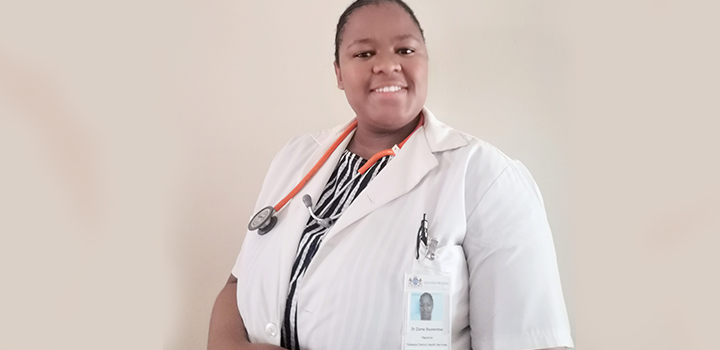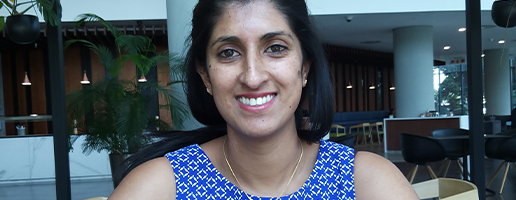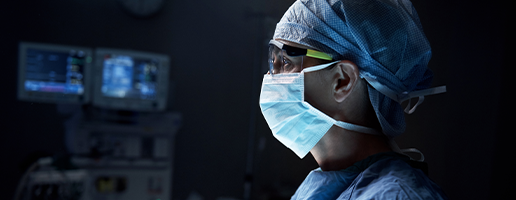Testing patient knowledge in the fight against non-communicable diseases

Seven of the world’s top 10 causes of death are non-communicable diseases, according to the WHO’s 2019 Global Health Estimates. Discovery Foundation Award recipient Dr Zamanci September believes education is key to making South Africans healthier.
Non-communicable disease: a global threat
There is a tidal wave of non-communicable diseases across the globe, and South Africa is no exception.
The World Health Organization’s 2019 Global Health Estimates revealed that 7 of the world’s top 10 causes of death are non-communicable diseases. Heart disease claims the top spot, having caused nearly 9 million deaths in 2019.
According to the NCD Countdown 2030, South Africans have a 51.9% chance of dying from chronic conditions like heart disease, diabetes, stroke, lung cancer and obstructive pulmonary conditions like asthma. But South Africans can get healthier, and education is key.
Understanding one’s risk of heart disease
“Many of these conditions are lifestyle-related,” says Dr Zamanci September, a third-year family medicine registrar at the Sefako Makgatho Health Sciences University in Tshwane.
The 31-year-old received a Discovery Foundation Rural Individual Award in 2020 to complete her MMed research project on non-communicable diseases. “The only way to combat these conditions is through education,” she says. “We must spread correct information to prevent NCDs and to give patients a practical guide to making lifestyle changes.”
For her research project, she will do a knowledge, attitude and practice study of patients at the Phedisong 4 Community Health Centre in Tshwane who are taking the cholesterol medicine statins to treat dyslipidaemia.
Dyslipidaemia occurs when there’s an abnormal amount of cholesterol or fat in the blood. It’s an important risk factor for heart disease, especially heart attacks. Dr September’s research will reveal how much patients know about their condition.
Joining the fight against non-communicable diseases
What inspired her to become a doctor and to specialise in family medicine? “I saw how dyslipidaemia affected my mother’s life. I also saw how access to the correct information could open people’s eyes and what a difference this knowledge could make in their lives,” she explains.
Dr September was born in Mthatha and completed her schooling at the Bizana Senior Secondary School close to the KwaZulu-Natal border. She initially studied biological sciences for one year at the Walter Sisulu University, after which she went to the University of KwaZulu-Natal to study medicine. She qualified as a doctor in 2012.
During her community-service year in rural KwaZulu-Natal she saw that doctors need broad, general knowledge and skills. “There was not any one specialty that appealed to me in particular, and I loved the diversity of being involved in a variety of fields. This led to my decision to specialise in family medicine,” she says.
“There was also one doctor, Dr Hervey Williams, who showed me what exactly a family physician does, and he inspired me to follow this route,” she adds. Another source of inspiration was Dr Vangile Mkhatshwa, who works at a local clinic in Pretoria. Dr Mkhatshwa is dedicated to educating patients about specific conditions that affect their lives – and motivated Dr September to do the same.
Tailoring research to patients’ needs
“The more patients understand about their condition, the better they can manage it,” Dr September says. She will ask patients questions before and after they have received information on their condition. When doing the research, she will keep in mind that patients’ education levels may vary.
Dr September says her Discovery Foundation Award covered the costs of her research and encouraged her to keep pursuing her work. “When I received this award, it also encouraged some of my colleagues to start thinking about doing research projects on ways they can provide a better service to their patients and help to ensure their long-term health,” she says.
This article was created for the 2020 Discovery Foundation Awards and has been edited for the Discovery Magazine.
About the Discovery Foundation
Since 2006, the Discovery Foundation has invested over R256 million in grants to support academic medicine through research, development and training medical specialists in South Africa.
The Discovery Foundation is an independent trust with a clear focus – to strengthen the healthcare system – by making sure that more people have access to specialised healthcare services. Each year, the Discovery Foundation gives five different awards to outstanding individual and institutional awardees in the public healthcare sector.
Related articles

Despite a challenging year marked by the global COVID-19 pandemic, the Discovery Foundation continues to support cutting-edge clinical research and medical training in South Africa’s public and academic medicine sector.

Dr Sumy Thomas: deciphering the human puzzle from the inside out
The recipient of the prestigious Discovery Foundation MGH Fellowship Award for 2020, Dr Sumy Thomas, will travel to Massachusetts General Hospital in Boston, US, where she’ll explore how HIV and antiretroviral medicine affect the endocrine system.

South African doctors bring global skills home with Discovery and Harvard fellowship
Every year since 2013, a South African doctor working in the public sector is chosen for a year-long fellowship to Massachusetts General Hospital, the largest teaching hospital of Harvard Medical School based in Boston in the United States.